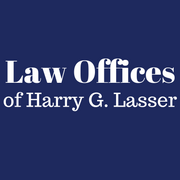What's the Difference Between Chapter 7 & Chapter 13 Bankruptcy?

Before you can discharge debt through bankruptcy, you must determine which approach is best for your financial situation. The two primary kinds of personal bankruptcy are Chapter 7 and Chapter 13. Some filers do not have a choice regarding which they pursue because they only qualify for one. If you think you might be eligible for both Chapter 7 and Chapter 13 bankruptcy, though, here’s what you should know about the major differences between the two.
Chapter 7 Bankruptcy
During Chapter 7 bankruptcy proceedings, the petitioner’s nonexempt assets are liquidated to pay back creditors. Any applicable debts that remain after this process are then discharged. In other words, this approach is for those who do not have the disposable income to make even the minimum payments on their various debts. To ensure petitioners pursuing Chapter 7 are in fact unable to meet their financial obligations as they currently stand, there are strict income requirements.
Chapter 13 Bankruptcy
 Chapter 13 bankruptcy is often called “reorganization bankruptcy” because it essentially reorganizes your debt so that paying it down is more manageable. During the Chapter 13 proceedings, petitioners propose a three- to five-year repayment plan. If the court accepts this plan, any applicable debts that remain after they have completed it will be discharged. Although Chapter 13 does not discharge debt right away like Chapter 7, many people find it more appealing because it allows them to retain their property, including those nonexempt assets that would otherwise be liquidated.
Chapter 13 bankruptcy is often called “reorganization bankruptcy” because it essentially reorganizes your debt so that paying it down is more manageable. During the Chapter 13 proceedings, petitioners propose a three- to five-year repayment plan. If the court accepts this plan, any applicable debts that remain after they have completed it will be discharged. Although Chapter 13 does not discharge debt right away like Chapter 7, many people find it more appealing because it allows them to retain their property, including those nonexempt assets that would otherwise be liquidated.
To determine whether you’re eligible to file Chapter 7 or Chapter 13 bankruptcy, turn to the Law Offices of Harry G. Lasser. For nearly two decades, their team has been representing clients throughout Cookeville, TN, and the surrounding area in bankruptcy court. They are knowledgeable in all laws pertaining to bankruptcy filings and foreclosures, ensuring you’ll find the financial plan that is best for your situation. To learn more about the firm’s practice areas, visit their website. To schedule an initial consultation, call (931) 372-9988 today.
About the Business
Have a question? Ask the experts!
Send your question

